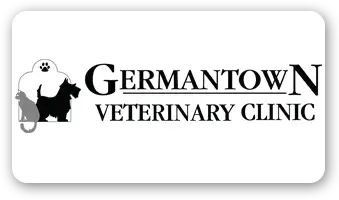Independence Day is coming right up. This can be a dangerous holiday for our animal companions! It’s important to be aware of the seasonal dangers that can threaten our furry pals, and take appropriate steps to keep your beloved pet comfy, healthy, and safe. A Germantown, MD vet offers some tips on keeping pets safe on the Fourth in this article.
Bring Pets In Early
Many pets get very, very scared by the sounds of fireworks. Even the most loving and loyal pet can bolt if they get scared. Limit your furry friend’s outdoor time around the summer holiday. Bring pets indoors before it gets dark, and don’t let them outside unleashed. The actual Fourth is the most important, but people sometimes get started early, so you may want to be careful that whole week.
Don’t Offer Unsafe Foods
Having a barbecue? It’s fine to offer Fido and Fluffy a treat, but you’ll need to be sure to stick with safe foods. Some of the unsafe options include garlic and onions, avocados, grapes and raisins, meat on the bone, and raw dough or yeast. Ask your vet for more information.
Keep Fido And Fluffy Calm
Does your four-legged pal hate loud noises? Pet-calming products, such as treats and pheromones, can be very helpful in soothing anxious pets. Puzzle toys and treat-dispensing toys can keep Fido and Fluffy occupied, while a radio may mask the noise.
Mind The Heat
The Fourth is often a scorcher. Keeping Fido and Fluffy hydrated is absolutely crucial when it’s really hot out. Make sure your fuzzy pal always has plenty of clean water and access to cool, shady areas.
Update ID
Reports of lost pets often spike around the Fourth. While we hope your four-legged friend stays safe and sound, it’s best to take some precautions. Make sure Fido and Fluffy are microchipped and wearing ID tags. (Note: GPS tags aren’t a bad idea, either.)
Avoid Chemical Exposure
Toxins are another concern. Some of the most dangerous ones include lawn/garden products, insect repellant, and torch oil, as well as certain plants. Things like slug bait and rat poison are also deadly. If you’re going to someone else’s place, ask if they have anything like that set out before letting Fido play in their yard. For more detailed information on what to do if you suspect your pet has been poisoned and how to prevent it, read our article “Top FAQs About Pet Poisoning.”
Our Advice on Fourth Of July Pet Safety in 2024
What precautions should be taken to protect pets during fireworks on the Fourth of July?
To safeguard pets during Fourth of July fireworks, it’s crucial to keep them indoors, ideally in a quiet, escape-proof area. If they’re known to be anxious, consider using pet-calming products or creating a comfortable hideaway with their favorite toys and bedding. Ensure all pets have up-to-date identification, such as microchips and tags, in case they become startled and escape. Planning ahead by acclimating them to the sounds of fireworks through recordings can also help reduce their stress during the actual event.
Which foods are unsafe for pets during Independence Day celebrations?
During Independence Day celebrations, certain foods pose risks to pets. Avoid sharing garlic, onions, avocados, grapes, raisins, chocolate, caffeinated items, and alcoholic beverages, as these can be toxic. Also, meats with bones, raw dough, and foods with xylitol (a sweetener) should be kept away from pets. It’s essential to stick to pet-safe treats and avoid giving table scraps, which may contain harmful ingredients or lead to digestive upset. Always consult your vet for a list of safe snacks to ensure your furry friend’s safety during festivities.
Why is it important to keep pets cool and hydrated during the Fourth of July?
During the Fourth of July, the combination of summer heat and outdoor activities can quickly lead to pets becoming overheated and dehydrated, which poses significant health risks. Ensuring pets stay cool and have access to fresh water is crucial to prevent heatstroke, a potentially fatal condition. Symptoms include excessive panting, drooling, lethargy, and, in severe cases, collapse. Keeping pets in shaded, well-ventilated areas and providing constant water access helps maintain their well-being amidst the festivities and high temperatures typical of this holiday.
What measures should be taken to ensure pets have proper identification during the holiday?
To ensure pets have proper identification during the holiday, it’s vital to equip them with up-to-date ID tags and ensure their microchip information is current. ID tags should include the pet’s name and contact information. For microchips, verify that the registration details are accurate and reflect your current contact information. This proactive approach significantly increases the chances of a swift reunion if a pet accidentally escapes amid the holiday commotion. Additionally, consider a GPS tracker for instant location tracking, offering an extra layer of security during such bustling times.
Which common summer toxins should pet owners be aware of to keep their pets safe?
During summer, pet owners should be vigilant about common toxins that can pose risks to their pets. These include lawn and garden products, such as fertilizers and insecticides; insect repellents, especially those containing DEET; and torch oils used in outdoor lighting. Additionally, watch out for toxic plants in the garden or wild, and ensure pets don’t access areas treated with slug bait or rat poison. Always store these substances securely and follow label instructions to prevent accidental exposure, keeping your furry family members safe throughout the season.
Is your pet due for an exam? Or perhaps you have immediate health concerns during this busy holiday? Our Veterinary Critical Care services are available to address any emergencies or urgent health needs your pet may have. Contact us, your Germantown, MD animal clinic, anytime!
